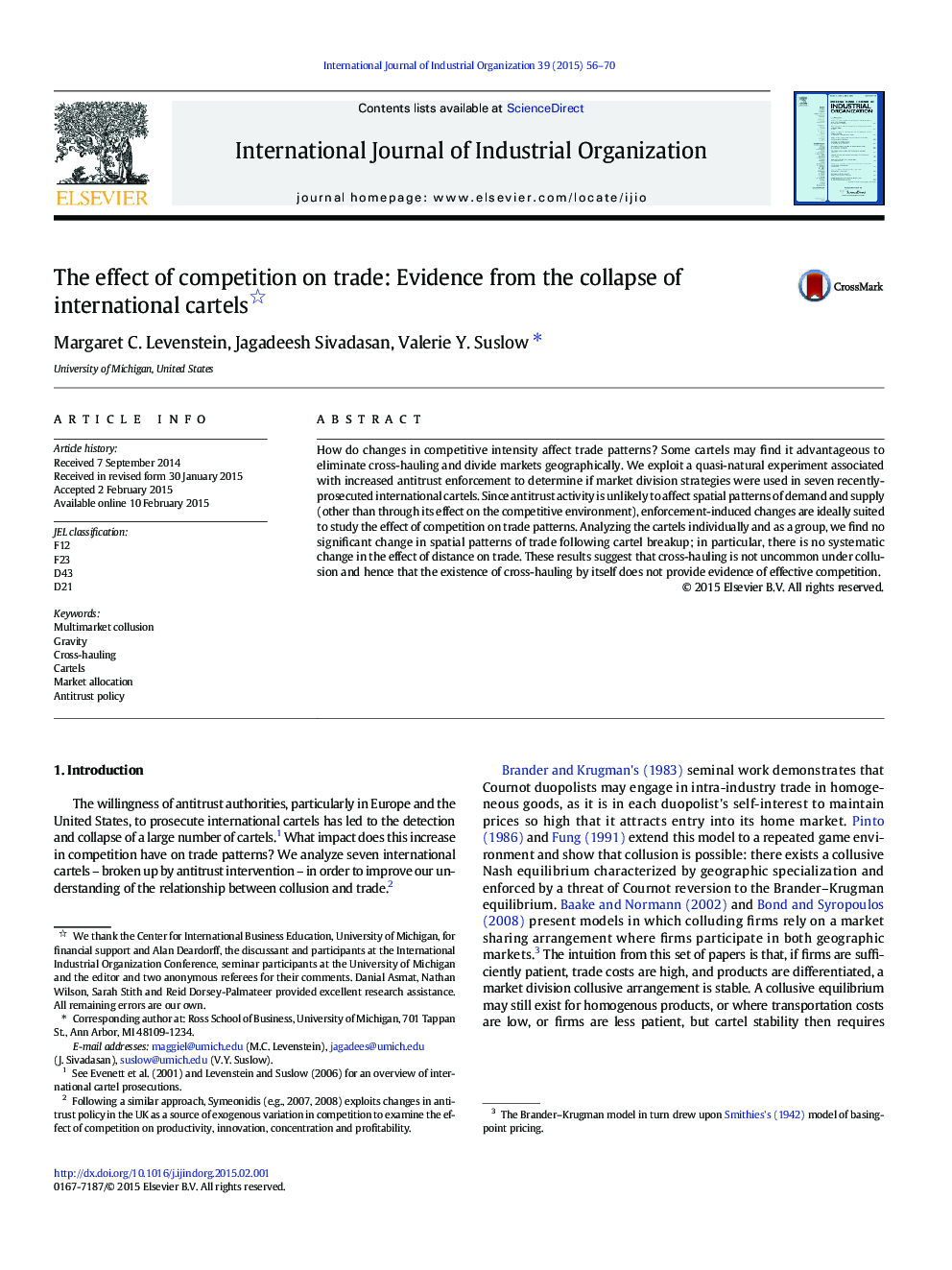| Article ID | Journal | Published Year | Pages | File Type |
|---|---|---|---|---|
| 5077945 | International Journal of Industrial Organization | 2015 | 15 Pages |
â¢We examine seven international cartels for use of market division strategies.â¢We find no significant change in spatial trade patterns following cartel breakup.â¢Cross-hauling is not uncommon under collusion.â¢Cross-hauling is not evidence of effective competition.
How do changes in competitive intensity affect trade patterns? Some cartels may find it advantageous to eliminate cross-hauling and divide markets geographically. We exploit a quasi-natural experiment associated with increased antitrust enforcement to determine if market division strategies were used in seven recently-prosecuted international cartels. Since antitrust activity is unlikely to affect spatial patterns of demand and supply (other than through its effect on the competitive environment), enforcement-induced changes are ideally suited to study the effect of competition on trade patterns. Analyzing the cartels individually and as a group, we find no significant change in spatial patterns of trade following cartel breakup; in particular, there is no systematic change in the effect of distance on trade. These results suggest that cross-hauling is not uncommon under collusion and hence that the existence of cross-hauling by itself does not provide evidence of effective competition.
